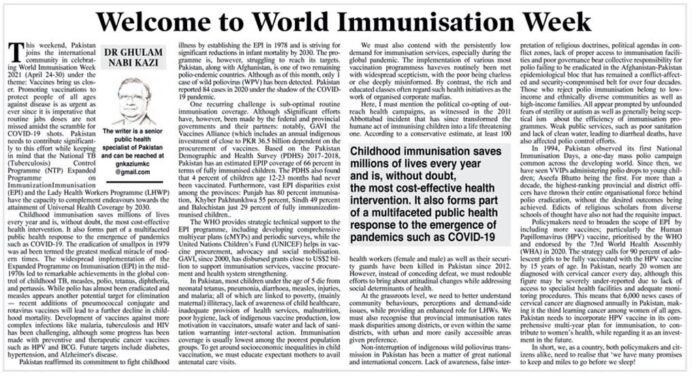
Neonatal diabetes is a rare form of diabetes that occurs within the first six months of life. It is different from other types of diabetes because it is not caused by autoimmunity or insulin resistance. Instead, neonatal diabetes is caused by genetic mutations that affect the function of the insulin-producing cells in the pancreas.
In this article, we will explore the causes, symptoms, and treatment options for neonatal diabetes. Understanding this rare form of diabetes is important for early diagnosis and appropriate management to prevent complications and improve the quality of life for affected individuals.
Causes of Neonatal Diabetes
Neonatal diabetes is a genetic disorder that is caused by mutations in certain genes that are critical for the development and function of the pancreas. These mutations affect the ability of the insulin-producing cells, known as beta cells, to secrete insulin in response to changes in blood glucose levels.
There are two main types of neonatal diabetes: transient neonatal diabetes mellitus (TNDM) and permanent neonatal diabetes mellitus (PNDM). TNDM is typically diagnosed within the first few weeks or months of life and may go away on its own by the age of 18 months. PNDM, on the other hand, is a lifelong condition that requires ongoing treatment.
Mutations in several genes have been linked to neonatal diabetes, including the KCNJ11, ABCC8, and INS genes. These genes play a critical role in the regulation of insulin secretion and glucose metabolism. In some cases, neonatal diabetes may be inherited from one or both parents, while in others, the mutations may occur spontaneously.
Symptoms of Neonatal Diabetes
The symptoms of neonatal diabetes can vary depending on the age of onset and severity of the condition. In general, infants with neonatal diabetes may exhibit the following symptoms:
– Excessive thirst and urination
– Weight loss and poor weight gain
– Fatigue and irritability
– Dehydration
– Hypoglycemia (low blood glucose levels)
– High blood glucose levels (hyperglycemia)
If left untreated, neonatal diabetes can lead to serious complications such as seizures, coma, and even death. Early diagnosis and prompt treatment are essential to prevent these complications and improve the long-term outcome for affected individuals.
Diagnosis of Neonatal Diabetes
Neonatal diabetes is typically diagnosed through a combination of blood tests, genetic testing, and clinical evaluation. If a healthcare provider suspects neonatal diabetes based on the symptoms and family history, they may recommend the following tests:
– Blood glucose monitoring: This involves measuring the levels of glucose in the blood over a period of time to determine if the infant has hyperglycemia or hypoglycemia.
– Genetic testing: This involves analyzing the DNA of the infant to identify any mutations in the genes associated with neonatal diabetes.
– C-peptide test: This involves measuring the levels of C-peptide, a byproduct of insulin production, to assess the function of the beta cells in the pancreas.
Once a diagnosis of neonatal diabetes is confirmed, healthcare providers can work with the family to develop a treatment plan that meets the individual needs of the infant.
Treatment Options for Neonatal Diabetes
The treatment for neonatal diabetes typically involves a combination of insulin therapy, monitoring blood glucose levels, and dietary management. The goal of treatment is to maintain blood glucose levels within a normal range to prevent complications and promote optimal growth and development.
Insulin therapy: Infants with neonatal diabetes may require insulin injections to help regulate their blood glucose levels. The dose and frequency of insulin injections will be determined by the healthcare provider based on the individual needs of the infant.
Blood glucose monitoring: Regular monitoring of blood glucose levels is essential for managing neonatal diabetes. This may involve using a glucose meter to measure blood glucose levels several times a day, as well as monitoring for signs of hypoglycemia or hyperglycemia.
Dietary management: A balanced diet is important for managing neonatal diabetes and maintaining optimal blood glucose levels. Healthcare providers may recommend working with a registered dietitian to develop a meal plan that meets the nutritional needs of the infant while keeping blood glucose levels in check.
In some cases, neonatal diabetes may be treated with oral medications that help stimulate insulin production or improve insulin sensitivity. These medications may be used in combination with insulin therapy to achieve better blood glucose control.
Prognosis for Neonatal Diabetes
The prognosis for neonatal diabetes can vary depending on the underlying cause, age of onset, and severity of the condition. In general, infants with transient neonatal diabetes have a good prognosis, as the condition typically resolves on its own by the age of 18 months. Those with permanent neonatal diabetes may require lifelong treatment and monitoring to manage their condition.
With early diagnosis and appropriate treatment, most infants with neonatal diabetes can lead healthy, active lives. Regular monitoring of blood glucose levels, adherence to the treatment plan, and ongoing support from healthcare providers are key to managing the condition and preventing complications.
In conclusion, neonatal diabetes is a rare form of diabetes that requires early diagnosis and appropriate treatment to prevent complications and promote optimal growth and development. By understanding the causes, symptoms, and treatment options for neonatal diabetes, healthcare providers can work with families to provide personalized care that meets the individual needs of each infant. By raising awareness of this rare condition, we can improve outcomes for affected individuals and contribute to ongoing research and advancements in the field of neonatal diabetes.












